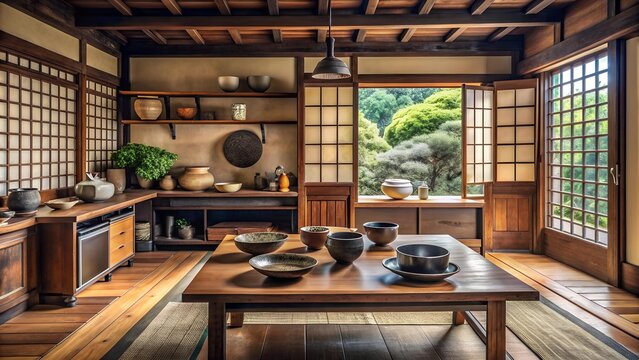🛏️ Beyond Comfort: Designing Bedrooms and Bathrooms That Heal, Hold, and Remember You
The Emotional Science of Rest: Sleep, Ritual, and Space Psychology
💭 Introduction: When Comfort Isn’t Enough
Let’s be honest: how many of us really sleep well?
We close our eyes, but our minds race. We wake up groggy, even after eight hours. Our bedrooms are technically fine—but something’s off. The lighting is sterile. The mattress is expensive but soulless. And the bathroom? It’s just functional. Clean. Cold. Forgettable.
That’s because we designed for comfort—but not for care.
And comfort alone is no longer enough.
In 2025, we are overwhelmed, overconnected, and overstimulated.
What we need now—more than ever—is to feel held by our spaces. We need our bedrooms to become sanctuaries of sleep. We need our bathrooms to offer ritual, not just routine.
We need to remember: spaces can heal us, if we let them.
🧠 Sleep Is a Nervous System Event
Sleep doesn’t start when the lights go out. It starts hours earlier—when your environment tells your brain: “You’re safe now. Let go.”
Here’s what neuroscience tells us:
-
The amygdala, your brain’s fear center, stays activated in high-stimulation environments.
-
Poor lighting, clutter, noise, and even scent can signal “danger” and disrupt melatonin release.
-
To sleep deeply, you need environmental trust: softness, dimness, silence, safety.
That’s why in 2025, sleep design is a thing.
We’re no longer decorating for style—we’re designing for cortisol levels.
🌘 The 4 Stages of Sleep—And How Design Impacts Them
| Sleep Stage | Brain Activity | Design Cues That Help |
|---|---|---|
| Light Sleep (Stage 1–2) | Body relaxes, heart rate slows | Warm lighting, no harsh blue LEDs |
| Deep Sleep (Stage 3) | Cellular repair, immune boost | Weighted blankets, heavy curtains |
| REM Sleep | Dreaming, emotional sorting | Personal items near the bed (photos, journals) |
| Wake Transition | Cortisol rises, body prepares | Sunrise alarms, natural light |
🧠 Design takeaway: Your environment should support the whole sleep cycle—not just falling asleep.
🪞 Sleep Rituals: Why Repetition Heals
Let’s talk rituals. Ritual is not routine. It’s not brushing your teeth. It’s brushing your teeth with intention. Ritual is repetition with meaning. And in bedrooms, ritual is everything.
A few soul rituals to layer in:
-
Bedside journaling – keeps thoughts from following you into dreams
-
Warm oil foot massage – an ancient Ayurvedic practice for grounding
-
Scent layering – sandalwood candle, then lavender pillow spray
-
Music for memory – one song you only play before bed, so your body learns to wind down
📌 Studies show: Consistent wind-down rituals improve sleep latency and REM depth by up to 35%.
🧘 Designing for Nervous System Safety
What makes you feel safe? That’s the question you must ask before picking colors, pillows, or lamps.
The Human Design Checklist:
-
Low-positioned lighting (floor and bedside): sends “sunset” cues to your brain
-
Rounded furniture: edges trigger the brain’s threat detection system
-
Weighted textiles: like a hug, stimulate parasympathetic calm
-
Curtains that block light and noise: especially in cities
🧠 Remember: safety isn’t style—it’s sensation. The body knows.
🛏️ The Bed: More Than a Mattress
A good bed is not expensive. A good bed is honest.
It’s layered with your history. Your breath. Your scent. Your softness.
Build a bed that remembers you:
-
Sheets that soften with time, not just thread count
-
A quilt you inherited or made, not bought in haste
-
Pillows that hold you, not just prop you up
-
A headboard that whispers, not shouts
🧠 Invest in what touches your skin. That’s where rest begins.
🔗 Authoritative Sources & Backlinks:
🛁 The Bathroom: From Function to Sacred Reset Space
Let’s shift to the bathroom—often the coldest, most neglected room in the home.
But imagine this:
You step into your bathroom. The light is warm. There’s eucalyptus hanging from the shower head. A ceramic tray holds your favorite oil. The mirror is backlit and low-glare. There’s a stool where you sit and breathe before a long day.
Suddenly, it’s not a bathroom. It’s a reset chamber.
🌿 The Five Elements of a Healing Bathroom
| Element | Example |
|---|---|
| Water | Adjustable pressure showerhead, deep soaking tub, foot basin for daily reset |
| Earth | Stone tiles, wooden bath brush, live plant in low light |
| Fire | Candle, incense, or warm-tone lighting |
| Air | Essential oil diffuser, open window, mini fan for freshness |
| Spirit | A photo, quote, or object that grounds you—visible during your morning mirror time |
🧠 The bathroom is not a utility zone—it’s where the body meets the soul.
📦 Small Shifts, Big Impact
Don’t have time or money to renovate? No problem.
Here’s what you can do in one weekend:
-
Swap overhead lights for soft LED strips under cabinets
-
Hang a plant from the ceiling—makes small spaces feel alive
-
Replace plastic bottles with glass or bamboo dispensers
-
Add a Bluetooth speaker: let music guide your ritual
-
Use a linen robe instead of synthetic towels—it changes everything
📌 Budget: Under $50. Impact: High.
🧠 Emotions in Tile and Light
This isn’t just style talk—this is real neuroscience.
-
Cool-toned tiles may look sleek, but increase detachment and reduce dopamine
-
Warm stone or earth tones increase safety and bodily awareness
-
Blue light in mirrors may trigger morning anxiety
-
Frameless mirrors create a feeling of disconnection—add texture around the frame
In short: bathrooms should feel like a cave, not a lab.
✍️ Final Thoughts (Part 1)
We’ve been taught to decorate from the outside in.
But healing begins from the inside out.
The way your home holds your body while you sleep—
The way your bathroom meets you when you feel raw—
These things matter more than trends, more than tech, more than likes.
Because comfort is a beginning. But healing—that’s the legacy.
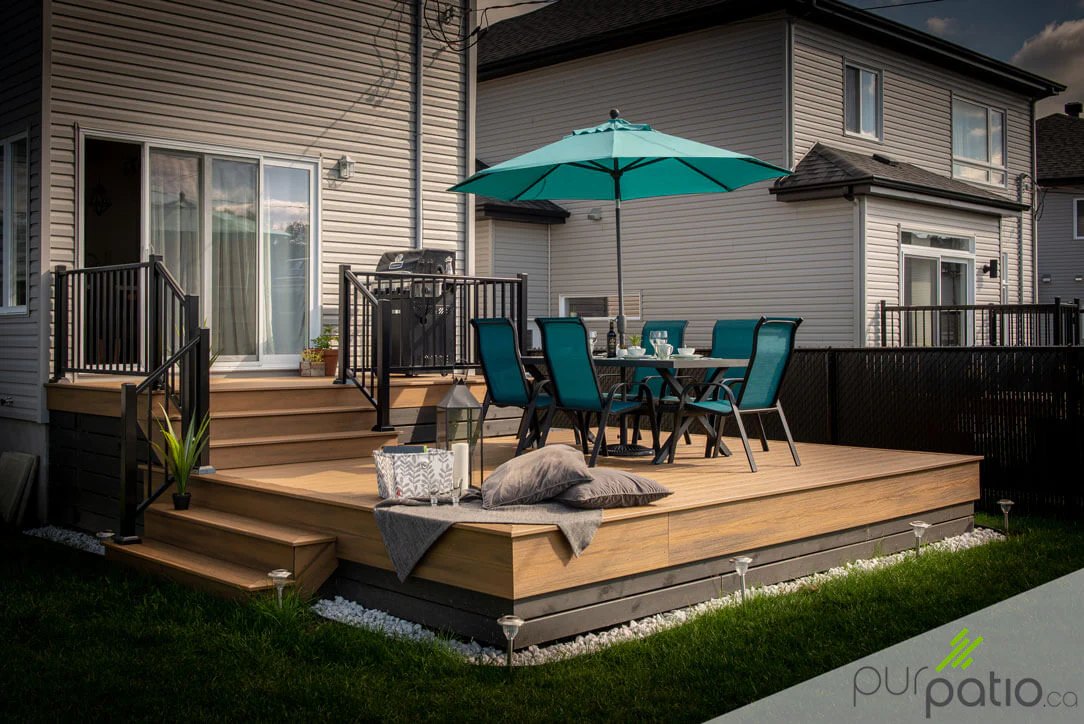
Bedroom as a Temple: Design That Restores Mind, Body, Soul
💭 Introduction: What If Your Bedroom Was Sacred?
Think of your bedroom—not as a space to sleep, but as a temple.
A place where your body comes to collapse and renew.
A place where you whisper your dreams to the ceiling.
Where you unmask, where you soften, where you become no one so you can become yourself again.
Yet most bedrooms today are more like hotels than havens—generic, bland, optimized for Pinterest but empty of presence.
This part is your blueprint to return to something deeper:
A room that reflects your soul’s rhythm, not just your designer’s taste.
🌿 The Bedroom as a Healing Chamber
Modern medicine is just now catching up to something ancient cultures already knew:
Spaces can regulate the nervous system.
3 Healing Roles of a Bedroom:
-
Nervous system regulation — calming sympathetic overload from your day
-
Emotional integration — where you process, feel, cry, rest
-
Spiritual reconnection — solitude, meditation, intimacy
This isn’t woo-woo—it’s neuroarchitecture.
🧱 Step One: Strip It Bare (Then Add Back with Love)
If you want your bedroom to heal you, start by subtracting.
Remove:
-
Harsh lighting
-
Technology (especially phones near the bed)
-
Busy artwork
-
Storage overload
Then add back, slowly and intuitively. Ask, “Does this item serve me or just fill space?”
Add back:
-
An object that comforts (e.g., soft shawl, stuffed animal, woven quilt)
-
A color that quiets (cool earth tones, moss, linen, stone)
-
A sound that softens (wind chime, white noise, ocean playlist)
🧠 Design tip: Don’t try to impress. Try to soothe.
🎨 Designing for Emotional Safety
You can’t rest where you don’t feel safe.
Safety, for most people, means predictability + softness + meaning.
How to build it into your room:
-
Bed placement: You should see the door but not face it directly (Feng Shui + psychology agree)
-
Lighting levels: Overhead = tension. Side/under = calm
-
Wall texture: Bare white = sterile. Consider limewash, fabric hangings, or even velvet panels
-
Underbed energy: Keep it clean or store only meaningful, calm-inducing things like spare blankets—not tax paperwork!
🛌 The Art of the Bed Shrine
Make your bed a shrine, not just a slab.
| Element | Purpose |
|---|---|
| Organic sheets | Skin-safe, breathable, connected to earth |
| Weighted comforter | Mimics being held, lowers cortisol |
| Side table altar | Candle, journal, essential oil blend |
| Signature scent | One that says “this is MY space” |
| Memory object | A book, a stone, a framed letter |
🧠 Human beings need ritual anchors to feel safe.
🧘 Mini-Rituals for Sacred Sleep
These take under 3 minutes and change everything.
-
Feet to floor practice: Sit at edge of bed. Feet on ground. 3 breaths. “I am here.”
-
Fabric pause: Brush your fingers over your pillow. Feel gratitude.
-
Mirror mantra: Choose one short line: “This is my rest. I deserve it.”
Do not underestimate these micro-moments. They are neural doorways.
💡 Lighting for the Spirit, Not Just the Eyes
Designers talk about “task lighting,” “ambient lighting,” and “accent lighting.”
But what about soul lighting?
Bedroom Light Zones:
-
Zone 1: Reading glow (warm LED lamp, ideally below eye level)
-
Zone 2: Entry light (motion sensor, low intensity)
-
Zone 3: Mood creator (string lights, Himalayan salt lamp)
-
Zone 4: Sleep prep (smart bulb on circadian timer—warmer toward night)
💡 A bedroom should never be fully bright. Not even at noon.
🪞Mirror Placement & Energy Flow
Mirrors are powerful. They double energy. They reflect emotion.
✅ Place mirrors:
-
Where they reflect something peaceful (a plant, curtain, or wood panel)
-
At angles that don’t face you directly while you sleep
🚫 Avoid:
-
Mirrors facing the bed (can trigger subconscious stress)
-
Reflections of clutter or electronics
🧠 Pro tip: Drape a scarf or veil over large mirrors at night. Your nervous system will thank you.
📦 Reclaiming the Floor
Floor space is energy space.
Too much “stuff” on the ground? You’ll feel weighted.
Too much “emptiness”? You’ll feel cold.
The balance:
-
Keep walking paths clear
-
Place a soft rug beside the bed
-
Add a floor cushion or low ottoman where you can sit close to the ground
Grounding is literal and emotional.
📚 Your Bedroom Is a Love Story
Whether you live alone, share with a partner, or rotate between guest rooms and your parents’ house—your bedroom tells a story.
Ask:
-
What do I want this space to say about me?
-
Do the objects reflect who I am today—or who I was years ago?
-
Is there softness here for when I fall apart?
-
Is there joy here for when I wake up laughing?
You don’t need a king bed to feel royal.
You need a room that knows your name.
🔗 Authoritative Sources:
📝 Final Reflection for Part 2
A true bedroom doesn’t just host your sleep.
It holds your grief. Your laughter. Your silence.
It stores your body’s unwinding. Your heart’s unraveling. Your soul’s return.
So next time someone asks, “How big is your bedroom?”
Tell them this:
“It’s big enough to hold my wholeness.”
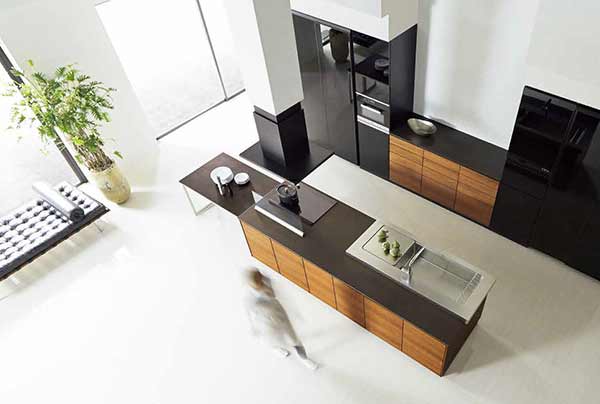
The New Bathroom: Spa Rituals, Silence, and Self-Worth in Tile & Water
💧 Introduction: Your Bathroom Isn’t Just a Room—It’s a Reset Ritual
You step into the bathroom.
You exhale.
It’s the one place no one follows you. No tasks, no phones, no performance.
Just water. Just tile. Just silence.
And yet—most bathrooms are painfully neglected. They’re sterile, clinical, rushed.
In 2025, we reclaim the bathroom as a sacred portal: a place where healing begins and ends, daily.
Because the bathroom isn’t just for hygiene. It’s for dignity.
🧠 The Psychology of Water and Wellness
Water is primordial. Before the womb, before the house—there was water.
Why bathrooms can heal:
-
Running water activates the parasympathetic nervous system (rest & digest)
-
Steam opens airways, pores, and emotional tension
-
Warmth increases serotonin and reduces muscle tension
-
Sound of a shower mimics white noise, calming the limbic brain
🧠 According to neurodesign experts, the bathroom is a naturally healing chamber. But only when we let it be.
🕯️ Spa vs. Bathroom: What’s the Real Difference?
A spa isn’t about luxury—it’s about intention + sensory layering.
Here’s the breakdown:
| Basic Bathroom | Healing Spa Space |
|---|---|
| Fluorescent lights | Dim, warm, soft lighting |
| Plastic bottle clutter | Natural textures: bamboo, stone, glass |
| Cold mirror + tiles | Heated towel, soft rug, ambient scent |
| Fast routines | Slow rituals: soak, scrub, sit, breathe |
| Sterile silence | Nature sounds, soft playlist, humming fan |
🧠 Design like every visit is sacred, and even 10 minutes becomes transformative.
💡 Designing a Healing Bathroom—Even in Small Spaces
You don’t need a marble tub or skylight. You need intention per inch.
5 Design Layers of a Ritual-Centered Bathroom:
-
Lighting
-
Replace overhead glare with a dimmable lamp or amber wall sconces.
-
Add a motion-sensor nightlight for calm midnight visits.
-
-
Scent
-
Eucalyptus in the shower = natural steam therapy.
-
Roll-on oils: bergamot for anxiety, lavender for sleep.
-
-
Sound
-
Rain track or wind chime playlist.
-
Portable mini speaker with waterproof case.
-
-
Touch
-
Textured bath mats (jute, cork, soft stone)
-
Linen towels—natural fibers relax skin receptors.
-
-
Meaning
-
Add ONE item that feels like you. A quote card. A photo. A childhood memory.
-
🛁 The Sacred Bathing Ritual (10 to 40 min Options)
| Time Available | What to Do |
|---|---|
| 10 minutes | Light candle, warm towel, splash cold water on face, slow deep breaths |
| 20 minutes | Shower with soft scrub, stand in steam, moisturize with care |
| 40 minutes | Full bath soak with bath salts or milk, background sound, silence or journal while drying |
💡 Add a bath caddy and a journal: water reveals what stress conceals.
🧽 Cleanliness as a Spiritual Act
Cleaning your bathroom isn’t a chore—it’s a ritual of renewal.
Try this:
-
Wipe the mirror while whispering a new affirmation each time: “I return to myself.”
-
Clean the sink while imagining stress draining away.
-
Light incense while scrubbing the tub. Make it a meditation, not maintenance.
🧠 When cleaning = presence, your bathroom becomes a place of quiet power.
🧼 The Power of Texture
Textures in the bathroom matter more than we think. Skin is your largest sensory receptor, and in this room, it’s exposed.
| Bad Texture | Good Texture |
|---|---|
| Cold steel | Warm brushed brass |
| Glossy plastic | Woven baskets, stone soap trays |
| Polyester towels | Organic Turkish cotton or linen |
| Slippery floors | Cork mats or micro-stone tiles |
Texture = trust.
Trust = healing.
🌫️ How to Create a “Steam Temple”
Don’t have a tub? No problem. A steam temple is a shower turned sacred:
-
Close windows
-
Add 4 drops of eucalyptus or tea tree oil to the corner
-
Let steam fill the air
-
Sit on a stool or low bench and breathe for 2–5 minutes
-
Rinse feet in cool water at the end
You’ll emerge cleansed and clear, emotionally and physically.
📦 Must-Have Tools for Spa-Like Vibes (Affordable Options)
| Item | Purpose | Price |
|---|---|---|
| LED showerhead | Mood lighting + energy boost | $15–30 |
| Bamboo bath tray | For candles, books, journal | $20–40 |
| Essential oil diffuser | Scent + air hydration | $25–50 |
| Soft robe (linen/cotton) | Grounding post-bath ritual | $30–70 |
| Reusable glass bottles | Elevate product display | $10–20 per set |
🧠 Investment in your bathing experience = investment in your nervous system.
💬 Human-Centered Habits
Design your bathroom to support real human moments:
-
Hang a towel by the tub for emotional comfort
-
Keep a “sacred face cloth” for tears, hot compress, or night calming
-
Add a ritual tray near your sink with 3 core tools: e.g., lip balm, face oil, grounding stone
-
Make a post-shower intention jar: draw a word (calm, courage, clarity) after each rinse
🧠 Your bathroom can become the emotional coach you didn’t know you needed.
🪞The Mirror Ritual
Don’t just glance—greet.
Every morning and night, meet yourself in the mirror. But don’t look for flaws.
Look for:
-
Color in your cheeks
-
Softness in your eyes
-
The trace of yesterday’s strength
Add a quote decal. Some favorites:
-
“You are safe here.”
-
“Begin again.”
-
“Your reflection is not your worth. It’s your witness.”
Let the mirror reflect kindness, not comparison.
🔗 Authoritative Sources & Backlinks
📝 Final Reflection (Part 3)
Bathrooms are where we’re raw. Naked. Real.
They’re not about beauty. They’re about belonging to yourself again.
So decorate your bathroom not for style, but for spirit.
Let it be a place where the weight comes off, not just your clothes—but your mind.
Let it be the place where you begin again, every morning.
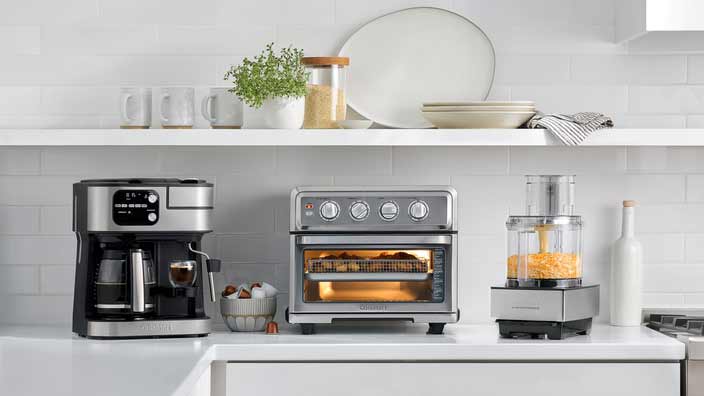
Seasonal, Sensory & Intimate: Building a Personal Atmosphere Over Time
🍂 Introduction: Your Home, a Living Organism
Homes are not static.
They breathe with you, shift with seasons, and change as you grow.
In Part 4, we explore how seasonality, sensory layers, and intimacy create a living atmosphere that evolves with you—a home that feels alive, personal, and restorative every day of the year.
🌱 Seasonality: Designing for Change, Not Stasis
Most homes are decorated “once and done.”
But nature teaches us that change is vital.
Why embrace seasonality?
-
Refreshes your senses
-
Signals your nervous system that time is moving
-
Helps prevent emotional stagnation
-
Cultivates mindfulness and presence
🍁 Seasonal Swaps: Simple, Soulful Shifts
| Season | Decor Shift | Sensory Focus | Emotional Impact |
|---|---|---|---|
| Spring | Pastel throws, fresh flowers, open windows | Light scents (jasmine, citrus) | Renewal, hope, energy |
| Summer | Linen bedding, light curtains, plants | Citrus, mint, ocean salt | Calm, cool, uplift |
| Autumn | Wool blankets, warm tones, candles | Cinnamon, clove, wood smoke | Comfort, grounding, coziness |
| Winter | Plush rugs, heavy drapes, twinkle lights | Vanilla, pine, amber | Warmth, safety, calm |
🧠 Switch small things. Your brain will celebrate the rhythm.
🎨 Sensory Layering: The Five Senses of Home
Your home speaks to you in five languages:
| Sense | Design Ideas | Why It Matters |
|---|---|---|
| Sight | Soft lighting, seasonal colors, meaningful art | Shapes mood and perception |
| Smell | Essential oils, fresh flowers, candles | Triggers memory and emotion |
| Touch | Soft blankets, textured pillows, warm fabrics | Grounds the nervous system |
| Sound | Nature playlists, water fountains, wind chimes | Calms or energizes the mind |
| Taste | Kitchen aromas, herbal teas, homemade treats | Creates comfort and belonging |
🧠 Multisensory design fosters emotional safety and joy.
💞 Intimacy: Crafting Spaces for Connection and Solitude
A home must serve two masters: connection and solitude.
-
Connection corners: cozy nooks with shared seating, soft light, communal textures
-
Solitude sanctuaries: personal alcoves, reading chairs, meditation mats
This duality allows you to heal relational wounds and recharge alone.
🕯️ Ritual Corners: Mini Altars of Mindfulness
Create intimate spots where you can ground yourself daily:
-
A small shelf with photos, crystals, or books
-
A candle station for nightly lights and intention setting
-
A meditation cushion with a favorite throw
🧠 These “intentional spaces” offer daily mental resets.
📦 Seasonal Maintenance Rituals
Your home loves routine care.
Try this quarterly practice:
-
Declutter one area with mindfulness
-
Wash textiles with intention
-
Add or swap out a scent diffuser or fresh greenery
-
Write a journal entry about how your space feels this season
Consistency deepens your bond with your space.
🌟 Building Atmosphere Over Time
Atmosphere is a slow dance of light, scent, sound, and touch.
-
Use dimmers and timers to change lighting gradually.
-
Blend scents for seasonal balance.
-
Rotate playlists monthly for fresh soundscapes.
-
Layer pillows and throws based on your mood and the weather.
Your home becomes a reflection of your inner rhythms.
🔗 Authoritative Sources & Backlinks
-
The Five Senses & Interior Design – Journal of Environmental Psychology
-
Ritual and Mental Health – American Psychological Association
📝 Final Reflection (Part 4)
When your home moves with you—through seasons, emotions, and life’s changes—it becomes more than shelter.
It becomes your constant companion.
Your comfort in chaos.
Your harbor and your hearth.
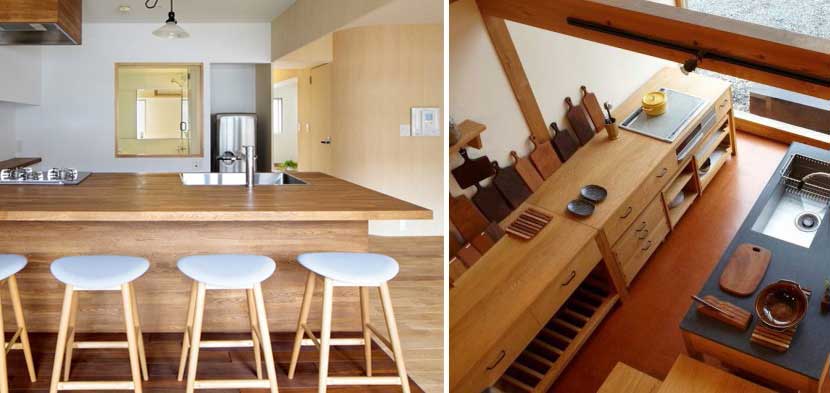
wood-as-main-material-in-influential-japanese-kitchens
Legacy of Rest: Designing for Future Selves and Long-Term Emotional Health
🧭 Introduction: What If Your Home Could Age With You?
We design our spaces for now. For this year’s trends. For this month’s Pinterest board.
But what if you designed your bedroom and bathroom for the future version of yourself?
For your tired seasons. For your healed seasons.
For the child you might raise. For the grief you might carry.
For the kind of rest you won’t even know you need yet.
This is legacy design—where comfort becomes care, and care becomes inheritance.
Let’s build homes that won’t just look good today… but feel like sanctuary for years, even decades, to come.
🧓 Designing for Future Bodies and Changing Needs
Your body will change. That’s not a question—it’s a promise.
So how can your home prepare?
Bedroom Considerations:
-
Bed height: Choose a frame that’s easy to get in and out of, even with aging joints.
-
Nightstand access: Wide drawers, rounded edges, reachable while lying down.
-
Non-slip rugs: Hidden velcro pads or rubber grips that prevent slippage over the years.
-
Dimmable lighting: Eyes will adjust slower with time—layers of light matter.
Bathroom Upgrades:
-
Curbless showers with built-in benches = futureproof elegance
-
Grab bars don’t have to be ugly—brushed brass styles now blend with luxury decor
-
Wall-mounted vanities allow easier wheelchair or stool access
-
Motion-activated nightlights guide sleepy steps to the toilet at 3am
🧠 Legacy design = designing with love for your future self.
🧠 Emotional Health as a Long-Term Design Goal
Not every chapter of life is joyful. Some are filled with grief, exhaustion, burnout, or solitude.
Your bedroom and bathroom can become emotional first responders.
Design for heavy days:
-
Keep a quiet corner: with a chair, a lamp, a journal
-
Store a grief box: letters, objects, scents that soothe your soul
-
Use fabric and softness: when the world feels harsh, textures can be your friend
-
Keep a mirror with affirmation cards or kind words stuck to the edge
💡 A healing home doesn’t just hold you when you’re strong. It cradles you when you fall apart.
🕊️ Space for Memory, Stillness, and Spirit
The longer you live somewhere, the more it becomes part of your story.
So don’t hide your memories—design with them.
Legacy Design Ideas:
-
Frame old love letters, recipes, or handwritten notes
-
Turn a bookshelf into a story altar: old journals, baby shoes, photos
-
Let your bed frame be carved, weathered, inherited—something with soul
-
Install a single hook for something sacred: prayer beads, a grandmother’s scarf, a cross or mala or candle holder
Design becomes healing when it honors where you’ve been.
🪞The Mirror as a Witness of Change
Over the decades, the mirror watches you grow up, grow in, grow old.
Instead of resenting it—make it your ally.
-
Place it in warm light.
-
Keep a quote beside it: “You are still becoming.”
-
Add texture around the frame—frame your aging with dignity.
-
Let it reflect softness, not critique.
🧠 A mirror is not for judgment. It is for recognition.
📦 Rituals That Age Well
Some rituals aren’t just for now—they’re for always.
Examples:
-
A nightly foot rub before bed = lifetime of grounded sleep
-
A bath every Sunday with the same oil = a 50-year tradition
-
Saying “thank you” aloud after making your bed = decades of subconscious self-love
Design supports these rituals when:
-
Oils have a designated tray
-
Robes are visible, not hidden
-
Candles are pre-set near the tub
-
Journals are within reach, not buried in drawers
These details build habits that outlive the trend cycle.
🏛️ Designing for Inheritance (Even If You Don’t Have Kids)
Even if no one inherits your home, someone will enter it someday:
A friend. A guest. A future version of you.
Let them find:
-
A space that was loved into being
-
A room that holds more emotion than ego
-
A bathroom that smells like care
-
A bedroom that hums with memory
You are building not just walls—but atmosphere.
🔗 Authoritative Sources & Backlinks:
📝 Final Reflection
Comfort is fleeting.
Design is seasonal.
But emotional architecture—that’s eternal.
When you build a bedroom that remembers,
When you create a bathroom that forgives,
When your home holds your softness and your strength—
You are not just building shelter.
You are building a future sanctuary.
And that, dear soul, is the legacy of rest.

Modern Kitchen Tools 2025


